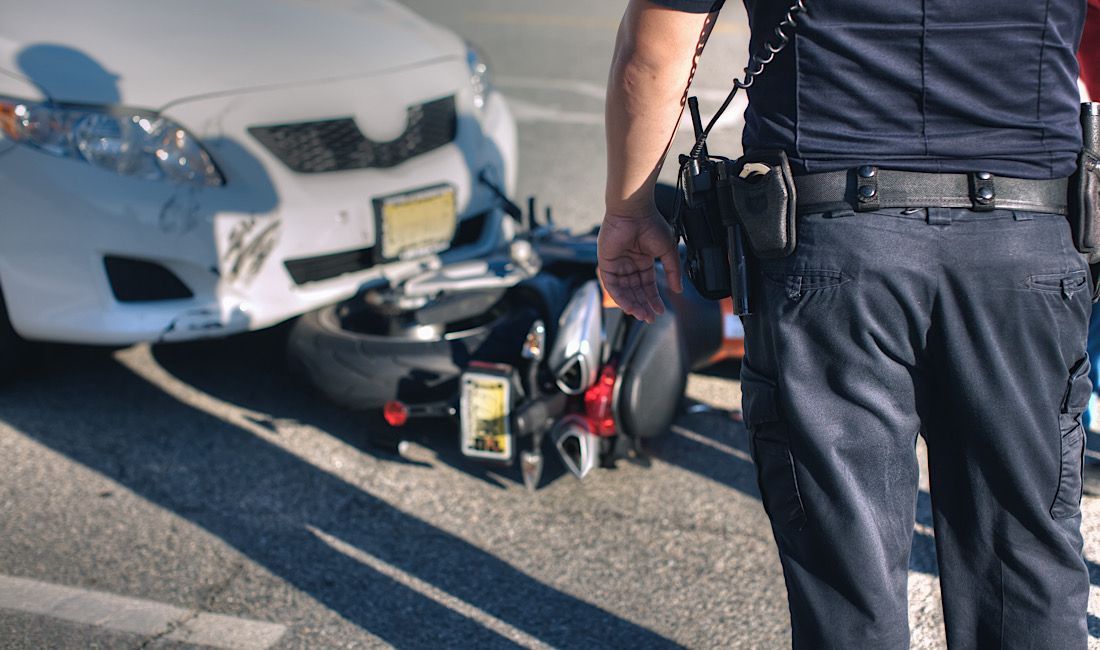How to File a Truck Accident Claim: A Step-by-Step Guide
Have you been in a truck accident recently? If so, you probably know how overwhelming the aftermath can be. No matter what the cause of the accident, filing a truck accident claim is a necessary step in order to receive the compensation you deserve. Knowing how to properly file a claim can be tricky, but don’t worry! This post is here to help. In the following step-by-step guide, we will walk you through the key steps of filing a truck accident claim and provide some helpful tips along the way. So put your worries aside and get ready to learn all about how to file a truck accident claim!
Understanding Insurance Policies
When it comes to understanding truck accident insurance, knowledge is currency. It is important to understand the details of your particular policy, as these will dictate what coverage you have access to in the event of an accident. Depending on the type and circumstances of your policy, there may be a variety of factors, such as deductibles, liabilities, and exclusions, that could impact the efficacy of the claim you’re filing.
Having an understanding of the coverage provisions for the involved parties is essential for navigating a successful truck accident claim. For example, many policies are structured around “no-fault” laws, which allow one party to recover certain damages from their own insurer regardless of who was at fault for the accident. Other policies may include provisions to cover damage to freight or cargo or even lost wages due to injuries sustained in an accident.
It’s also helpful to understand any limitations and secondary policies that may be included in your coverage. For instance, some liability policies only provide coverage up to a set threshold limit, which may not cover all associated losses depending on the scale of the accident. In addition, if a third-party driver is found liable, they may have their own separate insurance policy that could come into play during trial proceedings or settlement negotiations.
As you can see, having an appreciation for all relevant insurance policies helps ensure success when pursuing a truck accident claim. As we move forward with our process, let’s consider what sort of compensation and benefits your policy might cover moving forward, because this knowledge will go a long way toward getting fair remuneration for any losses incurred due to a truck accident.
What is Covered by Truck Accident Insurance?
When considering the cost and coverage of a truck accident claim, it’s important to understand what is actually covered by truck accident insurance. Generally, both commercial truck insurers and personal lines policies will cover damages related to the collision. Truck accident insurance will usually provide coverage for:
• Damages to the vehicles involved in the incident
• Medical bills, including hospital visits for treatment of injuries sustained in the accident
• Lost wages for time taken off from work to seek medical care or recover from injuries.
• Repair or replacement of property that was damaged in the collision
• Costs associated with filing a lawsuit if the case goes to trial
On the one hand, an insurance policy should offer coverage for a variety of types of losses arising from a truck accident. Therefore, it’s important to familiarize yourself with the specifics of your policy and investigate any potential possibilities for which you may be able to file a claim. On the other hand, people who find themselves in such unfortunate situations must take into consideration that
insurance companies tend to look out for their own interests first and foremost and are likely to downplay or deny any claims where appropriate. As such, it is important to fight back against unfair practices by working with attorneys who can help negotiate better settlements on behalf of claimants.
Now that we have rallied around what is typically covered in truck accident insurance policies, it’s time to move onto our next topic—investigating the truck accident. This step is incredibly crucial, as it will provide vital information about how and why the crash happened, helping determine liability and informing how you choose to proceed with your claim.
Investigating the Truck Accident
Once it has been established what is covered by truck accident insurance, there is the matter of investigating the accident in order to ensure that all of the proper claims are made. There are two sides to this argument: that evidence gathering and investigation should begin right away and that it may be better to allow more time before conducting a detailed investigation.
Those who argue that investigation and evidence gathering should start as soon as possible point out several benefits. Acting swiftly increases the chances of preserving valuable evidence, such as skid marks or fallen debris. Additionally, starting the process promptly can help make sure that any eyewitnesses’ memories remain intact.
On the other hand, those who support a slower approach feel that waiting a period of weeks or months can help investigators gain insights into the situation without being influenced by any biases that may have existed during the aftermath of the incident. If a significant amount of time has passed, certain details of what happened might no longer be accessible.
In this scenario, both points must be considered when making a decision on when to investigate the accident and preserve any evidence related to it. Thus, it is important for insurers and other involved parties to carefully weigh these matters in order to come up with an arrangement that works for everyone involved. After taking into account those factors best suited to the individual circumstances, insurers can then take steps toward gathering crucial information for making an effective claim. And with that in mind, handling progress will move toward the completion of vital documents such as a police report in order to make sure that everything is taken care of correctly.
Gathering Evidence and Police Report
After investigating the truck accident and gathering necessary information from the scene, it’s important to collect as much evidence as possible. This will aid in making an effective claim against the responsible party and
building a strong case should it go to court.
Photographs of the scene can offer key insight; for example, tire skid marks may provide an indication of who had control of their vehicle or who was speeding. It may also provide evidence if either driver attempted to brake or move away from the other vehicle. Additionally, photographs may reveal relevant surroundings, such as damage to road signs, buildings, or guardrails, that could have contributed to the accident.
If police were involved at the scene, an official report will be filed that includes a description of the crash, and any citations that may have been issued. This can also include information about fault, injuries, and insurance declarations. Regardless of fault, a police report is an important document that must be obtained after a serious truck accident. If officers were not present, you can still file your own report in most jurisdictions or contact the local police department and request one be taken.
Gathering evidence is critical when filing a truck accident claim, but it’s just as important to maintain good communication with any law enforcement officers who were involved at the scene. Their guidance and expertise can help in facilitating a fair settlement with all parties involved as well as aiding in identifying issues that might hinder filing a successful case. All these pieces of information will ensure you approach your claim in the best and most organized manner possible before moving on to resolving the issue with law enforcement.
Working with Law Enforcement to Resolve the Issue
After gathering evidence and assembling a police report on the event, it is important to work with law enforcement to resolve the issue. Depending on the specific details of the incident, it might be beneficial to work with authorities on prosecuting any wrongdoers. This could potentially benefit accident victims significantly when fighting for a claim.
There is an argument that working with law enforcement helps by providing concrete proof of negligence, which can further strengthen an accident victim’s case. Such proof might include testimony from eyewitnesses and/or physical evidence from the scene, such as skid marks or damaged property. Having this evidence under oath could help strengthen your claim and ensure you receive a fair and just outcome. Furthermore, thanks to modern technology, there are video camera systems that automatically store footage and can serve as additional proof when submitting the claim.
However, there are some who suggest that involving law enforcement can impede an individual’s ability to receive a settlement amount. For example, if the trucking company that caused the accident believes that their chances for success in court might be limited due to adequate evidence or clear-cut negligence, they could then choose not to settle out of court. Regardless of this potential risk, if seeking justice is key to
ensuring financial compensation, then bringing authorities into the mix may be necessary.
Once all evidence has been gathered and all parties have had the chance to work with law enforcement to achieve whatever resolution they deem acceptable regarding any legal proceedings, it’s time to prepare your claim against whoever is at fault. This can involve collecting the right documents and information and making sure everything is formatted correctly before filing your case in court or negotiating with insurance companies in order to maximize your expected compensation package.
Filing a Claim Against the At-Liable Party
Once the investigation is complete and law enforcement has concluded who was at fault for the truck accident and assigned liability, filing a claim against the at-fault party is the next step. When filing a claim, negligence must be proven in order to recover damages—it must be established that the person who caused the injury had a duty of care to those involved in the accident and that they breached that duty by acting negligently in some way.
Evidence such as written communication between the parties, police reports, surveillance video, witness statements, photographs, and medical records are all crucial pieces of information when filing a claim and must be provided as proof to substantiate the claims being made. It is also important to consider what types of damages are being claimed—this includes but is not limited to medical bills, property damage, loss of income, or any other associated costs resulting from the accident—and have an accurate estimate of their value ready in order to make a valid claim.
An insurance company may offer to settle out of court or offer a financial settlement to cover damages; however, it is essential that proper legal advice be sought prior to making any decisions in regards to accepting a settlement. An experienced attorney can assess the circumstances surrounding your individual case and provide informed counsel as to whether settling is best for you and your circumstances.
At this point in time, you will have obtained sufficient evidence and accurately estimated your losses; thus preparing you for documenting your injuries and lost earnings—the final step before seeking compensation for your claim.
Documenting Your Injuries and Lost Earnings
After filing a claim against the liable party, it is important to document your injuries and lost earnings as a result of the truck accident. Doing so will help you seek out fair compensation from the negligent party. It may be difficult to remember all the details related to your injuries immediately after an accident, so it is important to create an official record as soon as possible.
The first step in documenting your injuries is to visit a hospital or doctor’s office for a medical examination. During the appointment, explain any physical discomfort or symptoms that you felt immediately after the accident. A medical professional can properly evaluate your condition, diagnose any injuries, and advise on follow-up treatments. It’s important to keep track of all treatments, including follow-up appointments, physical therapy, and any medications prescribed. Keeping track of all these expenses can be helpful when seeking fair compensation down the line.
In addition to medical notes, you can also collect receipts for other losses related to an accident, such as car repairs and rental expenses if you used them while your vehicle was undergoing repairs. This will help demonstrate how much money you have spent due to the truck accident.
You may also want to keep detailed records of lost earnings due to doctor’s appointments and recovery periods. This can include records such as pay stubs or vacation time documentation, as well as documentation of any job offers that fell through due to missed opportunities. Collecting all documents related to lost wages or salary will support your accident claim with the evidence required by insurance companies or court cases down the line.
It is important to be thorough and honest when dealing with insurance companies when filing an accident claim since they will gain access to these documents during their investigation process. With clear documentation of your injuries and financial losses, you can ensure that you are fairly compensated for damages incurred in a truck accident.
With accurate documentation of injuries, treatments, and financial losses taken into account, it is then time to consider seeking legal advice and representation for a more successful outcome for one’s truck accident claim.
Seeking Legal Advice and Representation
Once you have collected all of your necessary documentation for your truck accident claim, it is time to decide if you need legal representation. With a complex case such as a truck accident, having a lawyer on your side can be beneficial to ensure that the insurance company does not take advantage of you. However, seeking legal advice doesn’t necessarily mean retaining an attorney; consulting with a lawyer can help you gain clarity and confidence that you are making the right decisions in the process.
Those who are considering seeking legal representation should consider the pros and cons of hiring a lawyer. On one hand, having an attorney can be helpful in ensuring that all essential materials are properly filed and that no deadlines are missed. Additionally, an experienced lawyer will likely have insight into how to negotiate with the insurance company and may even positively influence the outcome of your case.
On the other hand, seeking legal representation is often expensive, and you will be responsible for paying additional fees. Many people choose to represent themselves in order to save money but should consider the risks of taking this route. Going through the claims process without an attorney can be risky due to a lack of expertise and experience in filing paperwork correctly or negotiating a fair settlement. Furthermore, if certain evidence is overlooked or deadlines are missed due to inexperience, it could cost you more money in the long run if your case does not settle successfully.
Ultimately, whether or not you seek legal advice or choose to retain an attorney depends upon your specific case and any mitigating factors involved in your particular situation. The best way to make an informed decision is by doing thorough research when evaluating potential attorneys and understanding what their specific services will cost before entering into an agreement.
Schedule a Consultation with Our Truck Accident Attorneys Today
At Frischman and Rizza, we understand how devastating a truck accident can be. That’s why we’ve put together this step-by-step guide to help you file a truck accident claim. However, we know that each accident is unique and requires personalized attention. Our experienced truck accident attorneys are here to help you navigate the process and pursue the compensation you deserve.
Don’t hesitate to contact us at (412) 291-9377 to schedule a consultation and learn more about how we can assist you with your case.





